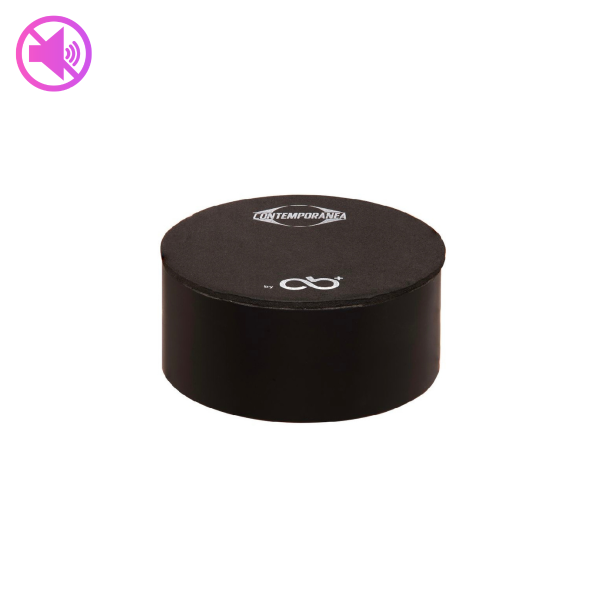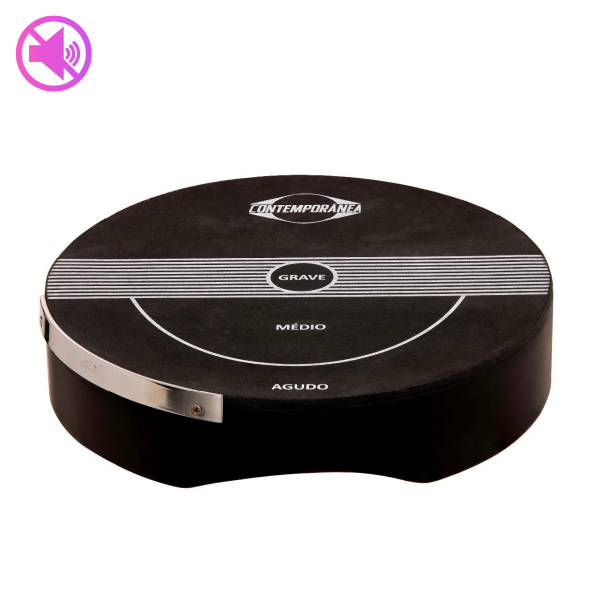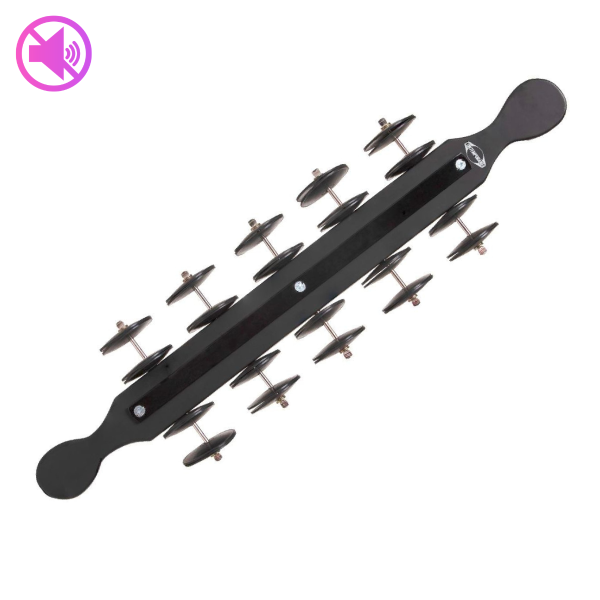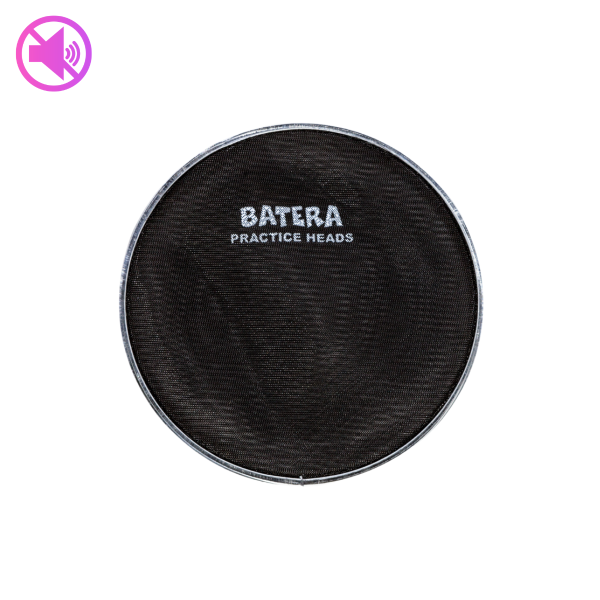Practice instruments for Samba at home: 6+ tips why silent samba gear makes absolute sense
Rio Samba, Samba Reggae, Maracatú, Forró, Capoeira, Samba de Mesa, mix-styles - Brazilian music is so diverse, almost no other style in the world offers such a wide range of instruments to chose from.
Probably any (hobby-) musician of any level will find their place somewhere in Brazilian music, as differently challenging instruments attract a broad spectrum of people from beginners to semi-/pros. Not to mention how much fun drumming actually is in a group. But does banging on a drum already make it music? And how can you improve quickly? What tools are there beyond normal band rehearsals? How is percussion music doable if you live in a small flat with many neighbours?
Driving your neighbours nuts? Try a silent instrument
Everyone joins a band with different expectations. Some just want to play to have a bit of fun and go for a beer afterwards with their band mates. Others develop more ambition, practise, get better, visit workshops, become more creative and also try out other instruments. The techniques in Brazilian percussion are often overlapping, which means that if you know how to play one instrument well, you will most likely learn to play another with a similar technique relatively quickly. But, as with every instrument, it takes a lot of practise.
How to push your playing skills to the next level
A good start to getting better or learning other drums in the bateria range is to create a habit of picking up an instrument outside the regular rehearsal every now and then. Anyone who plays classical instruments like the piano, the clarinet or violin will be very familiar with this concept, there's no getting around practising more than once a week. The beginning will be hard, we're not going to lie. Your fingers will hurt, muscles are still weak, the technique is not developed, the sound not good. But all this are normal things. So how do you actually get beyond this point and improve your playing? After all, drums and percussion are loud instruments and not everybody is able to bang Samba drums at home. And is it even possible at all - to play Samba alone at home, without a group and without the other instruments? Yes, it is! With a practice instrument or a so-called piece of silent gear.
6+ tips on why you need to get a silent instrument now
1. With a silent practice instrument you can rehearse quietly at home without disturbing anyone
Many of us live in cities, often in flats with lots of neighbours or other family members or non-percussion-partners in the same household. Theoretically, in most countries you are legally allowed to practise a musical instrument at home for a certain amount of time each day or week, but you definitively don't want to annoy the whole neighbourhood by banging the drums every day. With a silent instrument, you can practise at home at almost any time and nobody will notice. Of course, even silent instruments are not a 100% silent, but they are quiet enough not to disturb anyone and still allow you to practise authentically. Your flat mates will appreciate it ;)
2. You'll get stronger and get used to movement patterns
If you increase your "Samba milage", you will notice a lot of progress in a very short time. This starts physically. Your body has to get used to the weight of the instrument and build muscles in the right places. If you have ever been to a workshop weekend, you will for sure remember coming home, hyped, feeling superstrong and your playing will be so much better all the sudden. That's because you put many miles on your Samba-meter. If you only play once a week, it will be difficult to get beyond a certain level. Practice instruments weigh just as much as a real instrument, and even if the sound is silent, you are practising under conditions comparable to a normal band rehearsal. Try it!
3. The more relaxed you are, the nicer you'll play
Really guys - it's super easy: if you practise more, you'll ease up, and so will your body. This will immediately reflect in your sound. A relaxed sambista brings a much nicer swing to the band. And also it's a lot more enjoyable if you don't have to run around with sore muscles and back pain for the next three days after every rehearsal. Try to play your practice instrument outside the rehearsal at home or in the park at least once a week, just for 15 minutes but without stopping and add a few breaks to losen things up. You'll quickly gain stamina and become really fit on your instrument. So little effort and highly efficient!
4. Playing alone resolves many questions
There are no stupid questions. Quite the opposite. The more questions you have about the sound, the playing technique, the musical style, musical backgrounds, interpretation and performance, the order of a Samba de Enredo, the instruments involved etc., the better. This shows that you are trying to connect with your music. When playing alone, you will quickly notice where you are still lacking or where you are musically unsure. Samba is not a secret - your mestre or group leader will be happy to help you answer any questions you may have in order to improve your playing and contribute to the band.
5. Hear and see yourself play
When you play with your band, you might not always be able to hear yourself playing, or at least not in details. A bateria can be really loud or you might musically hide behind more dominant players because you are new or maybe not so experienced. But any mistakes can still be well heard from the outside, even if you are in middle of a 20-person bloco. By practising alone from time to time, you will hear how beautiful your swing already is, but you will also notice weak points. That's a really good thing! Only then can you can identify what still needs work and then aim on getting better. With a practice instrument at home, you can take things easy and bring your Samba skills to the next level. Ask your mestre to take a look at your playing technique, you posture and have him listen to your sound; then use this feedback at home, maybe even in front of the mirror - always a revealing experience.
6. If you play better, your band is also better
Every band is only as good as its weakest player. You can't hide in the crowd when drumming. This is a widespread misconception. If you're not confident yet with what your role is musically or your rhythm is not tight yet, or you don't know the repertoire well enough, you can still go join your bateria with a practice instrument. That way you are part of it, you'll get practice and a full feel for playing, however, mistakes remain invisible and, above all, unheard. When you are confident enough, you can switch to a normal instrument. You could even join a gig really early in your "Samba-career" with a silent instrument!
+ Tip for groups:
As a community, get a few practice instruments for the the whole band to use and that the players can borrow when they feel like practising, or for newcomers to practice at home. Beginners, for example, can play in the bateria at an early stage without affecting the rehearsal routine. Especially Samba newcomers get the chance to gain playing experience with practice instruments or even to take part in a gig at an early stage. As a side effect, they'll gain staminia and will be able to become a valued part of a bateria even quicker. Silent practice instruments as a community investment are a sustainable purchase that really pays off and benefits everyone in the band.
This sounds as if everyone has to have a silent instrument, but until now we all did quite alright without one, didn't we? Do practice instruments only have advantages?
Of course not. First of all, it's another piece of gear lying around at home. Then it costs money. Most of the silent instruments, especially the rubberised ones, come pretty close to an authentic playing feel. But of course a practice instrument is not a 100% substitute for a real instrument, so you can't compare them 1:1. But that's not what it's supposed to be. As a core statement, one could say: a practice instrument should give you the opportunity to practise an otherwise loud instrument outside of rehearsals in order to become better and fitter on the instrument. All in all, it's worth getting a silent instrument, and we particularly like the option of "instrument-sharing" and the beginner's options as this ensures that it's used to capacity, reduces the costs for the individual and you might actually practise more if you only get your hands on one of these occasionally. What do you think?
Here are a few examples of silent instruments played by Contemporânea endorsers:












